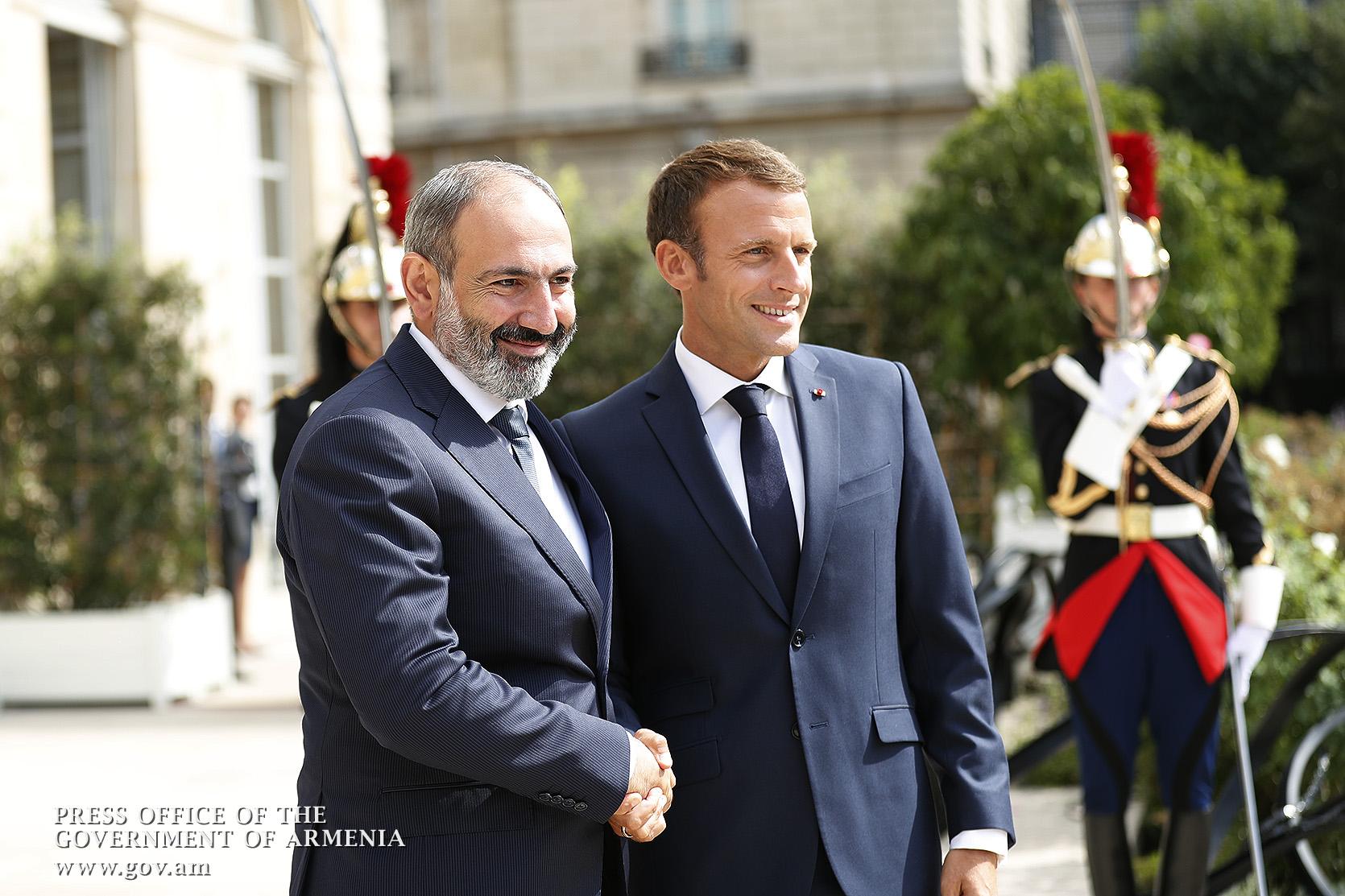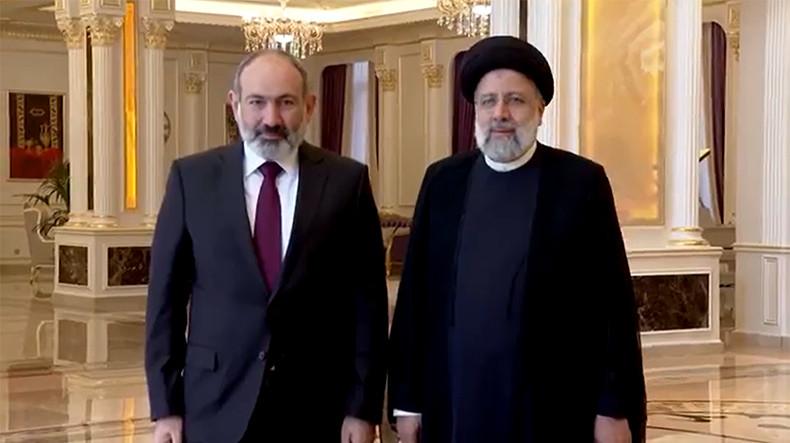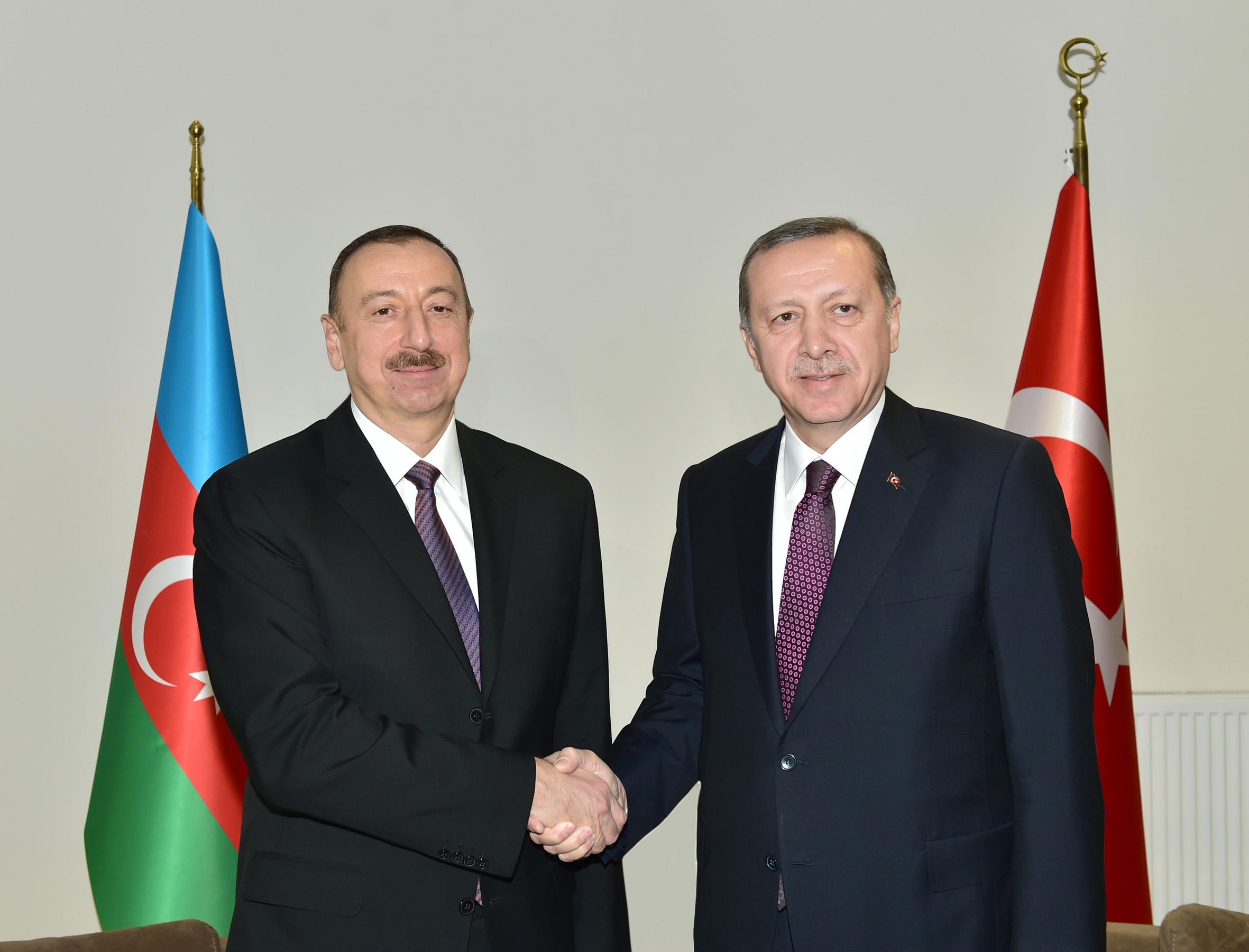Navigating Geopolitics: Analyzing pros & cons of Azerbaijan's Zangezur Corridor project Apple of Discord: Who is to prevail?
The Zangezur Corridor project, a strategic initiative by Azerbaijan to restore the railway and road connections with the exclave of Nakhchivan through Armenia, has re-emerged as a geopolitical focal point following the resolution of the Karabakh conflict in the 2020 Second Karabakh War.
This ambitious endeavor signifies not only the revival of crucial infrastructure but also serves as a testament to the evolving dynamics in the South Caucasus region. As Azerbaijan takes steps to reconnect with its exclave by land, the project has garnered diverse reactions from regional and global stakeholders, including Iran, Türkiye, Russia, and the West.
Historical context
The Zangezur Corridor is not a brand-new project but the one Azerbaijan is making huge efforts to have restored that ceased to function when Armenia occupied Karabakh and surrounding territories. That is, the Baku-Yerevan railway line which was operational until 1991, passed along the Araz River between Azerbaijan and Iran, entering Nakhchivan via Zangezur and then Yerevan as a final destination.
Since 2020, Baku has been pressurizing Yerevan to live up to commitments made under the November 10, 2020, trilateral peace deal, and Armenia's efforts, rallying foreign forces to withstand the realization of the project, backfired. Azerbaijan has already managed to prove that it is highly immune to external pressures and demonstrated its ability to turn pressure mechanisms against itself into the main problem of the West to make the latter reckon with Azerbaijan's regional leadership.
The 44-day war in 2020 resulted in Azerbaijan reclaiming these territories, and as part of the 9-point agreement, brokered by Russia, and Armenia committed to reopening the corridor. With this historical backdrop, the restoration of the transportation network holds both symbolic and practical significance for Azerbaijan.
What is the West’s take on the route?
The West's response to the Zangezur Corridor is characterized by caution and observance. While recognizing the importance of regional stability, Western powers are likely to approach the project with a nuanced perspective, considering their diplomatic relations with all involved parties.
From Baku’s perspective, the collective West remains tight-lipped about the Zangezur Corridor that Azerbaijan has been going to the trouble of restoring to link its exclave of Naxcivan with the mainland.
In particular, the USA with huge economic, political, and military interests in the region leaves the key regional actor Azerbaijan open-mouthed with indifference as Washington could have persuaded Yerevan to a constructive approach to the wider regional economic development by surmounting obstacles to have peace and smooth the path of opening transport projects to be instrumental in the regional economic revival.
With their inertia, some Western nations are endangering Armenia's future destiny and chances of development in pursuance of their geopolitical interests that run against that of the region. On the other hand, the USA, France, and the European Union in concert and individually are revising the directions of their geopolitical tactics in the South Caucasus to commence certain adjustments, and the major reason is directly related to the fact that the West's pressure on Azerbaijan is far from being efficient.
Interestingly, official representatives of the EU have recently been trying to clarify the content of mutual relations with Armenia in a certain sense and do not intend to provide military assistance to Armenia since this institution is not a military alliance, but a union formed around political and economic values. For this reason, the EU prefers to distance itself from the possibility of supporting Armenia, if the military processes in the region come to the fore.

France's attempts to act as a world giant in the South Caucasus seem to have also failed, as it has obvious difficulties in meeting the expectations of Armenia and the latter believes that official Paris’ military support is insufficient for its security interests. France also indirectly hints that it will not be able to defend Armenia in the next war.
Representatives of the Armenian diaspora emphasize that Paris told them that France has no geopolitical interests in Armenia and that sending old-styled weapons to Armenia serves the purpose of maintaining positive relations between the Macron government and the Armenian diaspora.
In the event of a military conflict, the West will not defend Armenia and will rather act according to its geopolitical interests. The geopolitical interests of the USA and the West have become more directly dependent on the political will of Azerbaijan and Yerevan cannot change this situation. The West's manipulative promises are currently putting Armenia in great danger as the latter continues its confrontation with Azerbaijan under the Western promises.
Armenia & Iran acting in concert
While Armenia has committed itself to reopening the corridor, the actual implementation poses challenges due to historical grievances and ongoing geopolitical tensions. The domestic political landscape in Armenia, influenced by the aftermath of the Second Karabakh War, adds complexity to the nation's stance on the project.
Iran has expressed opposition to the Zangezur Corridor, citing concerns about potential geopolitical and economic ramifications. The Iranian perspective underscores the delicate balance of relationships in the region, as Iran seeks to safeguard its interests while maintaining diplomatic ties with both Azerbaijan and Armenia.

Since Armenia is observing instructions of the USA and the West, Azerbaijan needed to reconsider its plans for the Zangezur corridor, although Baku has not completely removed it from the agenda and keeps it as a spare option.
Yerevan is blocking some important projects with positions that could harm the interests of Armenia. In particular, promises similar to the statements made by Josep Borrell, the representative of the European Union on foreign policy and security issues, that ‘a very difficult situation has taken shape in Armenia and this requires decisive support by the European Union’ distance Yerevan from reality.
The unfulfilled promises of the West to Yerevan are mostly triggered by private interests, as there is absolutely no doubt that the USA and the West are trying to exclude Russia from all geopolitical, geo-economic, and geostrategic projects in the South Caucasus, including the Zangezur corridor. The United States and the West have now focused their attention on controlling the Zangezur corridor and are directing official Yerevan to annul the tripartite agreements that can play a special role in the settlement of this issue.
Azerbaijan, and Türkiye main drivers of the Zangezur Corridor project
Azerbaijan views the Zangezur Corridor as a vital link reconnecting the exclave of Nakhchivan to the mainland, fostering economic development, and enhancing regional stability. The completion of the road and railway infrastructure to the Armenian border marks a significant milestone in Azerbaijan's efforts to assert its sovereignty and leverage its energy resources.

Türkiye, a staunch ally of Azerbaijan, supports the Zangezur Corridor project, viewing it as a means to bolster regional connectivity and strengthen economic ties. Ankara's endorsement reflects its broader strategy of expanding influence in the South Caucasus and fostering collaboration with Azerbaijan.
Baku is not at all interested in the opening of the Zangezur corridor under the direct control of Armenia, considering it inadmissible to have citizens of Azerbaijan and transported goods checked by Armenia.
Therefore, Baku currently considers it possible to open a route through the territory of Iran as an alternative option. However, the Pashinyan government’s hopes that Azerbaijan would accept all conditions of Armenia, as it needed the Zangezur corridor, failed.
However, subsequent processes show that Armenia's calculations are about to be wasted again. Yerevan is about to exclude Armenia from the geo-economic project of great importance for the South Caucasus. Azerbaijan's agreement with Iran to construct the transport corridor to its exclave has seriously worried Armenia, and the Armenian government’s “Crossroads of Peace” project also remained beyond the spotlight and proved once again that without Azerbaijan’s participation, Armenia cannot implement any regional projects.
Baku will not allow Armenia to implement any project that is not in the interests of Azerbaijan. From this point of view, Armenia's only chance for participation in regional projects depends on the opening of the Zangezur corridor. If the corridor is not opened, Armenia’s current situation will persist and remain under blockade.
The West's interests and plans related to the Zangezur corridor, in a certain sense, are leading to the extension of Armenia's blockade. From this point of view, it is also possible to claim that the West blocked Armenia's chance of development with unrealistic promises and kept retaining the country pain-racked.
The current conditions in the wide region open up opportunities for new transport corridors. Taking into account the development prospects of the world economy, as well as the fact that Azerbaijan plays the role of a transport hub between Asia and Europe, the opening of the Zangezur corridor is of vital importance.
In remarks about the importance of the Zangezur Corridor, President Ilham Aliyev said "there must be new roads for goods from Central Asia. The route across the Caspian Sea is very attractive in terms of time… and the economic efficiency of the Zangezur corridor should not cause any doubt".
International experts believe the trade turnover between Europe and Asia will be 200 billion dollars in the next 10 years. If this amount is large, it indicates that the volume of transported goods will also increase. If 10 percent of cargo transportation is carried out through the Zangezur corridor, Azerbaijan will have the opportunity to earn over 3 billion dollars in transit income annually.
If the expansion of the corridor and the transport connection between China and other countries of Asia with Europe are established through the Zangezur Corridor, the amount of income can increase to 5 billion dollars.
The importance of the Zangezur Corridor in international cargo transportation is also that the cargo will be delivered to the customers faster in terms of time. The Zangezur Corridor will connect not only Nakhchivan, which is the main part of Azerbaijan but also Türkiye and Europe in terms of transportation with Azerbaijan.
Russia
Russia's stance on the Zangezur Corridor appears nuanced, with indications of support but not resolute commitment. Moscow's approach may be influenced by its delicate balancing act in maintaining ties with both Azerbaijan and Armenia, as well as its broader regional interests.
Conclusion
The Zangezur Corridor project stands at the crossroads of historical legacies, geopolitical interests, and regional aspirations. As Azerbaijan moves forward with the restoration of crucial transportation links, the reactions from Iran, Türkiye, Russia, and the West underscore the intricate web of alliances and rivalries shaping the South Caucasus. The successful implementation of the corridor could redefine regional dynamics, fostering cooperation or intensifying existing tensions in this geopolitically sensitive region.








